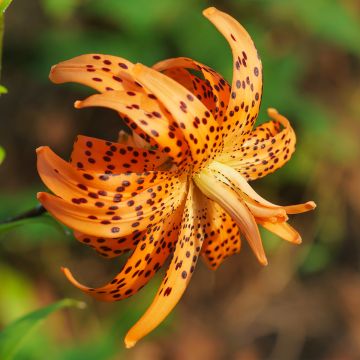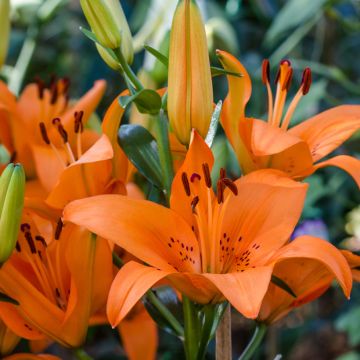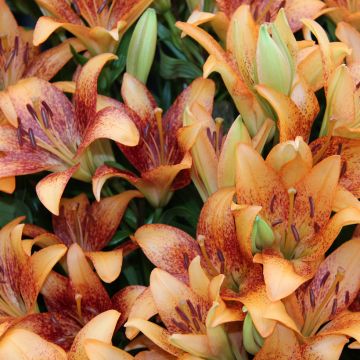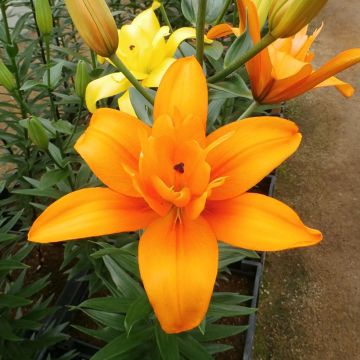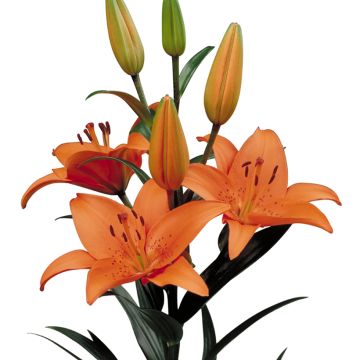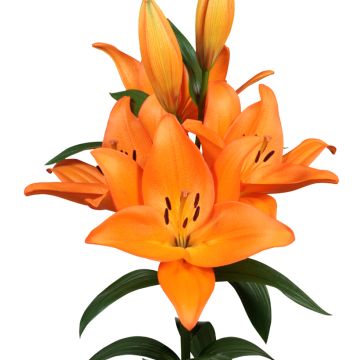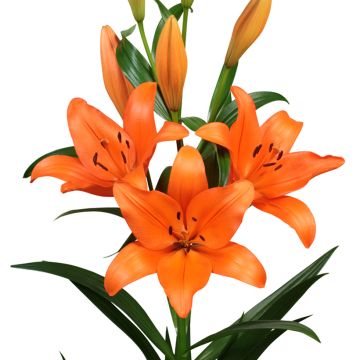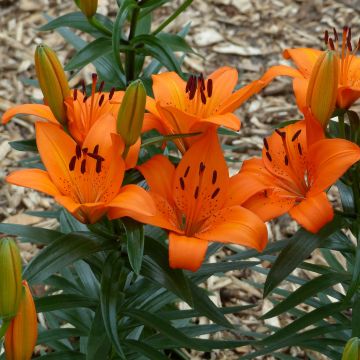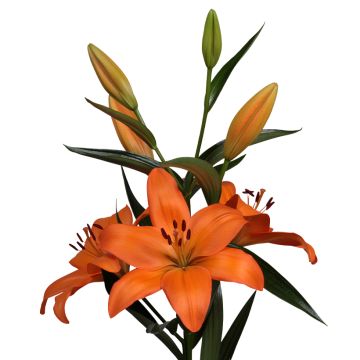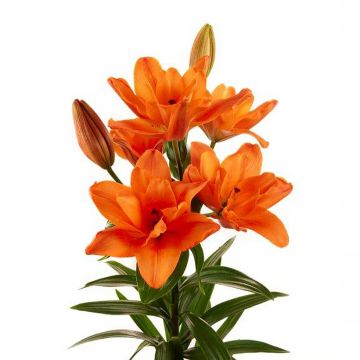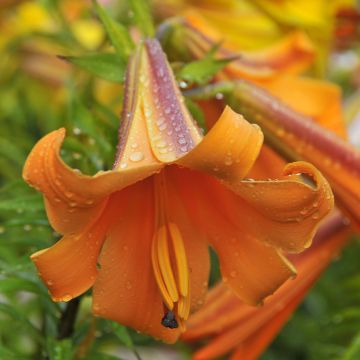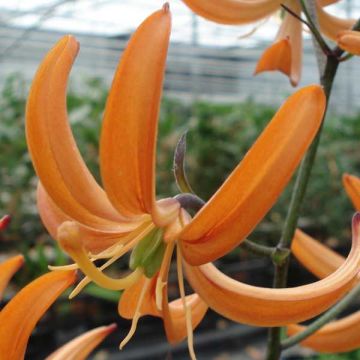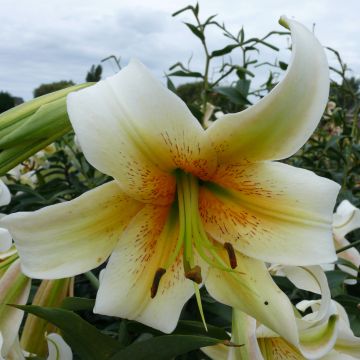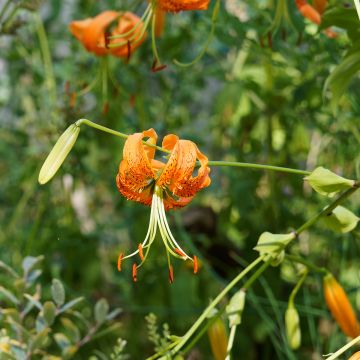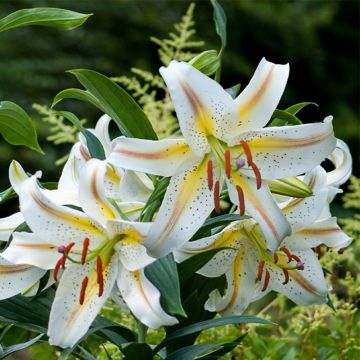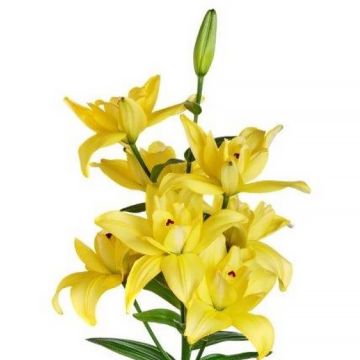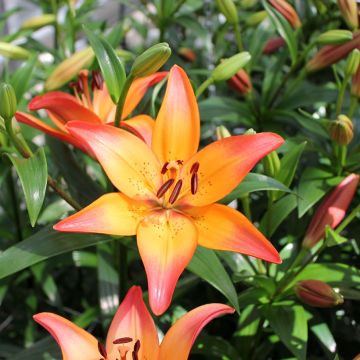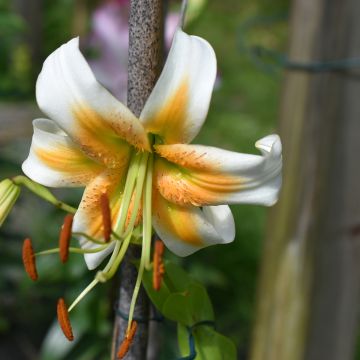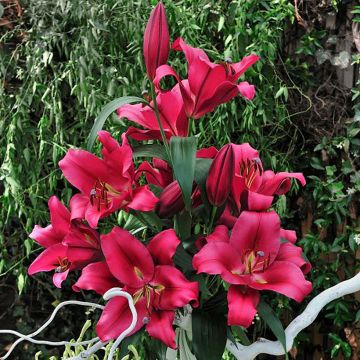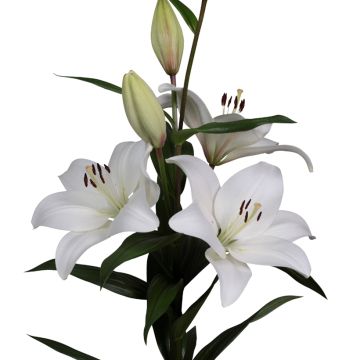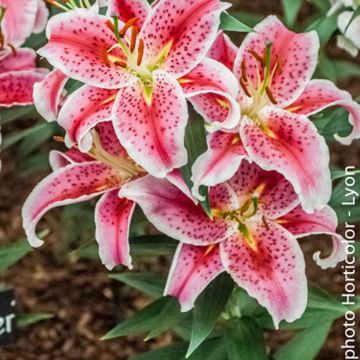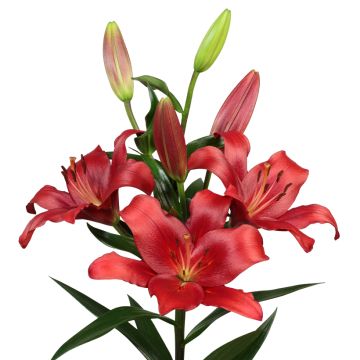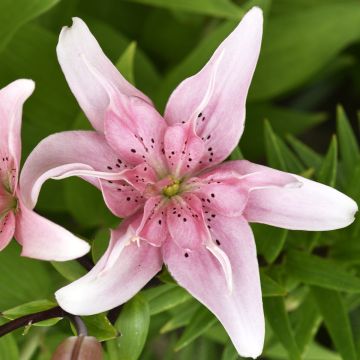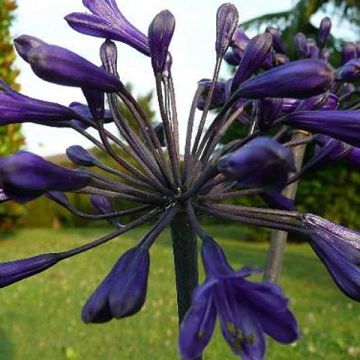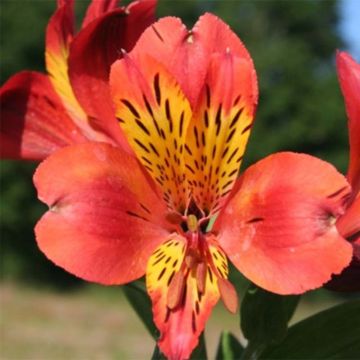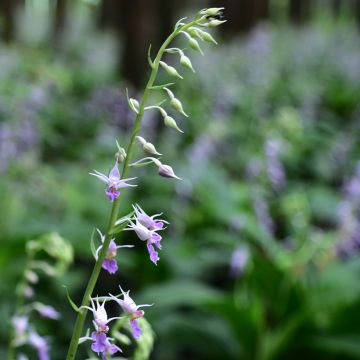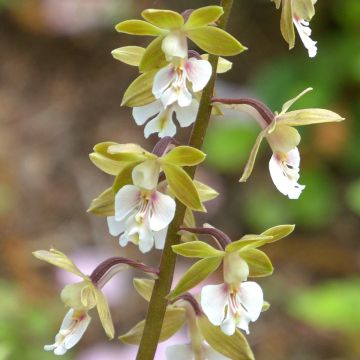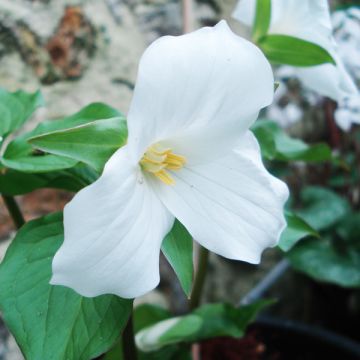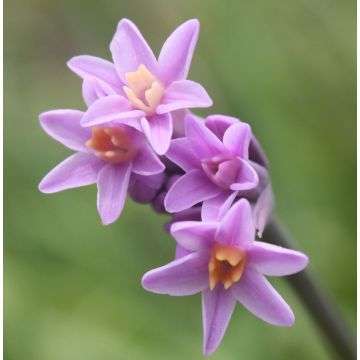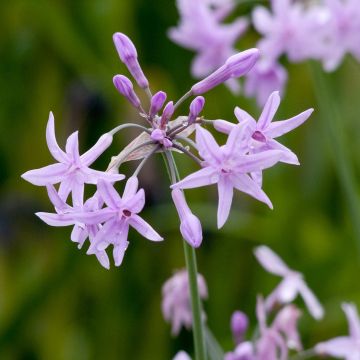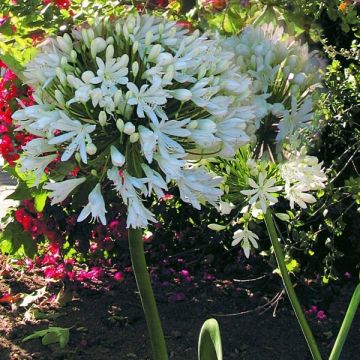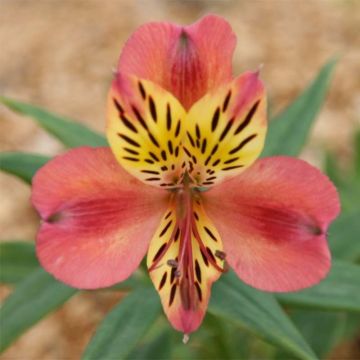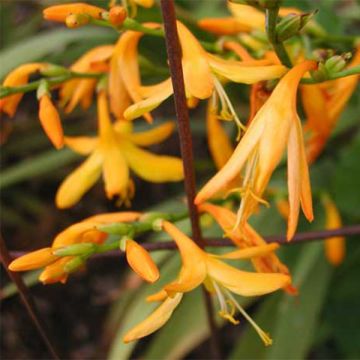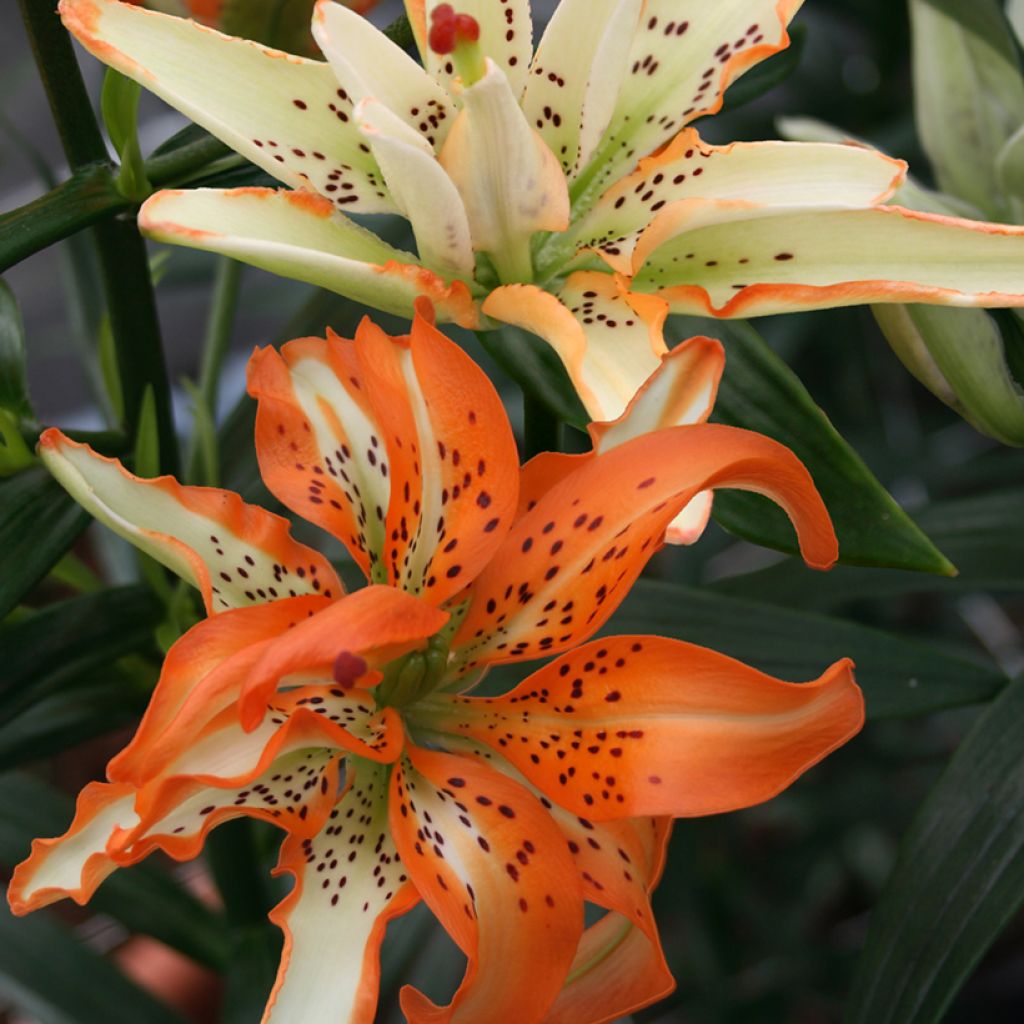

Lilium Must See - Lily
Lilium Must See - Lily
Lilium Must See
Lily
Why not try an alternative variety in stock?
View all →This plant carries a 6 months recovery warranty
More information
We guarantee the quality of our plants for a full growing cycle, and will replace at our expense any plant that fails to recover under normal climatic and planting conditions.
From €5.90 for pickup delivery and €6.90 for home delivery
Express home delivery from €8.90.
Does this plant fit my garden?
Set up your Plantfit profile →
Description
The double Asian lily 'Must See' truly lives up to its name. This amazing variety produces double, striped flowers that vary in shape and colour, ranging from orange to creamy white, with some flowers displaying a hint of green. It is a robust plant with vigorous growth, very easy to grow, reliable, and blooms faithfully in summer. It will bring a lot of originality to borders or bouquets.
The Lilium 'Must See' is a bulbous plant from the lily family. It forms a narrow, very vertical clump reaching about 1.10 m in height at full bloom. The clump will spread indefinitely over time, as the bulbs produce bulblets through vegetative propagation. The spectacular flowering occurs in July-August, lasting 3 to 4 weeks. Along the leafy stems, 13 well-upright flowers appear in the axils of the leaves. They have a fleshy, waxy texture, measuring 11 cm wide. The unique feature of these flowers lies in their doubling and variable colours. The petals are narrow and somewhat twisted. Their colours range from solid orange-red to white on the same stem, passing through intermediate shades and a greenish hue. Another unusual fact is that the stamens do not produce pollen. The stems are very sturdy, covered with alternate, medium green, narrow, glossy leaves with parallel veins. The growth cycle of this 'Must See' lily is deciduous: it emerges in spring and withers before winter. Thriving in rich humus soil, hardy, this lily appreciates well-drained and light soils.
The Asian lily 'Must See' will bring a truly unique touch to sunny borders, edgings, or flower beds. To enhance its beauty, it can be paired, for example, with 'Stella de Oro' daylily with golden yellow flowers, 'Walker's Low' catnip Nepeta faassenii forming a haze of lavender blue flowers, and 'Autumn Joy' Sedum spectabile' with pink-red flowers turning rusty by late summer. The Asian lily 'Navona', which produces beautiful white flowers, creates an elegant contrast with the 'Must See' lily, both in the garden and in a vase.
Report an error about the product description
Plant habit
Flowering
Foliage
Botanical data
Lilium
Must See
Liliaceae
Lily
Cultivar or hybrid
Other Lilies
Planting and care
The 'Must See' lily appreciates humus-bearing, well-drained, and light soils. You will plant it in full sun, or in partial shade in regions with very hot summers, preferably in autumn, burying the bulbs 15 cm deep in soil mixed with leaf compost. In a sand pocket, they will avoid rot as well as slug attacks. Mark the planting location, as vegetation only starts in April. If you live in a region with particularly harsh winters, you can also plant them in early spring, as soon as the soil is workable.
When the stems reach 30 cm high, discreetly stake them. If red insects appear, treat them without delay, as they are lily beetles whose larvae can devour all the leaves. The most effective method is to catch them by hand, be careful, they drop as soon as you touch them, so put a box underneath.
After flowering, it is useful to cut the faded flowers halfway to keep the bed beautiful during the summer.
Tip for planting lilies in compact soil: The scaly bulbs of tall lilies fear clayey soils that suffocate them and cause rot. In Eastern Europe, they are planted on 'benches' built above ground level. These benches consist of a first layer of gravel, on which well-packed branches are placed. Then cover everything with a thick layer of leaf compost of 20 to 30 cm. Plant the bulbs in the compost, on which you can also let some creeping plants grow.
On the terrace, you can create sumptuous pots with lilies. Choose a container large and deep enough (at least 16 cm for a bulb). Fill it with a mixture of garden soil, leaf compost, and sand. Plant the lilies in groups of 3 to 5 bulbs depending on the pot size, 10-15 cm apart, then water generously. Place the pots in a cool room, or outside once the frost has passed. Make liquid fertilizer applications twice a month until the floral buds appear.
Planting period
Intended location
Care
This item has not been reviewed yet - be the first to leave a review about it.
Hardy summer bulbs
Haven't found what you were looking for?
Hardiness is the lowest winter temperature a plant can endure without suffering serious damage or even dying. However, hardiness is affected by location (a sheltered area, such as a patio), protection (winter cover) and soil type (hardiness is improved by well-drained soil).

Photo Sharing Terms & Conditions
In order to encourage gardeners to interact and share their experiences, Promesse de fleurs offers various media enabling content to be uploaded onto its Site - in particular via the ‘Photo sharing’ module.
The User agrees to refrain from:
- Posting any content that is illegal, prejudicial, insulting, racist, inciteful to hatred, revisionist, contrary to public decency, that infringes on privacy or on the privacy rights of third parties, in particular the publicity rights of persons and goods, intellectual property rights, or the right to privacy.
- Submitting content on behalf of a third party;
- Impersonate the identity of a third party and/or publish any personal information about a third party;
In general, the User undertakes to refrain from any unethical behaviour.
All Content (in particular text, comments, files, images, photos, videos, creative works, etc.), which may be subject to property or intellectual property rights, image or other private rights, shall remain the property of the User, subject to the limited rights granted by the terms of the licence granted by Promesse de fleurs as stated below. Users are at liberty to publish or not to publish such Content on the Site, notably via the ‘Photo Sharing’ facility, and accept that this Content shall be made public and freely accessible, notably on the Internet.
Users further acknowledge, undertake to have ,and guarantee that they hold all necessary rights and permissions to publish such material on the Site, in particular with regard to the legislation in force pertaining to any privacy, property, intellectual property, image, or contractual rights, or rights of any other nature. By publishing such Content on the Site, Users acknowledge accepting full liability as publishers of the Content within the meaning of the law, and grant Promesse de fleurs, free of charge, an inclusive, worldwide licence for the said Content for the entire duration of its publication, including all reproduction, representation, up/downloading, displaying, performing, transmission, and storage rights.
Users also grant permission for their name to be linked to the Content and accept that this link may not always be made available.
By engaging in posting material, Users consent to their Content becoming automatically accessible on the Internet, in particular on other sites and/or blogs and/or web pages of the Promesse de fleurs site, including in particular social pages and the Promesse de fleurs catalogue.
Users may secure the removal of entrusted content free of charge by issuing a simple request via our contact form.
The flowering period indicated on our website applies to countries and regions located in USDA zone 8 (France, the United Kingdom, Ireland, the Netherlands, etc.)
It will vary according to where you live:
- In zones 9 to 10 (Italy, Spain, Greece, etc.), flowering will occur about 2 to 4 weeks earlier.
- In zones 6 to 7 (Germany, Poland, Slovenia, and lower mountainous regions), flowering will be delayed by 2 to 3 weeks.
- In zone 5 (Central Europe, Scandinavia), blooming will be delayed by 3 to 5 weeks.
In temperate climates, pruning of spring-flowering shrubs (forsythia, spireas, etc.) should be done just after flowering.
Pruning of summer-flowering shrubs (Indian Lilac, Perovskia, etc.) can be done in winter or spring.
In cold regions as well as with frost-sensitive plants, avoid pruning too early when severe frosts may still occur.
The planting period indicated on our website applies to countries and regions located in USDA zone 8 (France, United Kingdom, Ireland, Netherlands).
It will vary according to where you live:
- In Mediterranean zones (Marseille, Madrid, Milan, etc.), autumn and winter are the best planting periods.
- In continental zones (Strasbourg, Munich, Vienna, etc.), delay planting by 2 to 3 weeks in spring and bring it forward by 2 to 4 weeks in autumn.
- In mountainous regions (the Alps, Pyrenees, Carpathians, etc.), it is best to plant in late spring (May-June) or late summer (August-September).
The harvesting period indicated on our website applies to countries and regions in USDA zone 8 (France, England, Ireland, the Netherlands).
In colder areas (Scandinavia, Poland, Austria...) fruit and vegetable harvests are likely to be delayed by 3-4 weeks.
In warmer areas (Italy, Spain, Greece, etc.), harvesting will probably take place earlier, depending on weather conditions.
The sowing periods indicated on our website apply to countries and regions within USDA Zone 8 (France, UK, Ireland, Netherlands).
In colder areas (Scandinavia, Poland, Austria...), delay any outdoor sowing by 3-4 weeks, or sow under glass.
In warmer climes (Italy, Spain, Greece, etc.), bring outdoor sowing forward by a few weeks.

































